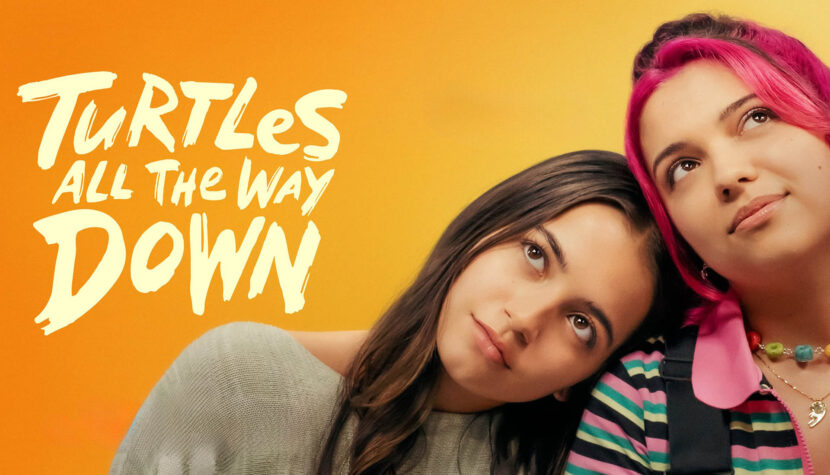Undoubtedly, the world has changed, yet at the same time, it remains largely the same. The channels of information exchange have changed the most, and young people always use them most intensely. So, if in my day, when I was sixteen, there had been opportunities to send dick pics, they probably would have been sent. Youth seldom hesitates when it comes to moral and cultural norms imposed by the old, and ultimately, that’s because adolescents should always have the courage to overcome obstacles, even at the cost of making mistakes or doing something foolish. This vitality often helps them conquer not only the world with its rigid rules but also their own problems, which adults often fail to fully understand because they too easily forget their own youth and how they compulsively reacted to criticism of their dreams by others. However, the main protagonist of “Turtles All the Way Down” struggles with a much deeper problem with the world. She has a panic fear of bacteria, leading her to psychotic states that she tries to manage by self-harming. The film interestingly and suggestively visualizes Aza Holmes’ fears (played by Isabela Merced) through graphic and auditory means, introducing a demonic voice into the teenager’s monologues as she tries to cope with what’s happening to her.

Indeed, these states metaphorically resemble paranoia due to a spiral of anxiety from which someone wants to break free, yet any activity that liberates them only creates new anxiety triggers. Eventually, these triggers must be discharged through causing oneself some form of suffering, often physical. It’s impossible to sever this emotional thread, and the surroundings increasingly distance themselves because they view someone with such anxiety disorders as self-centered. In a sense, they are, from the outside, but stepping out into the environment with such overwhelming thoughts is often nearly impossible. Moreover, adolescent life stimuli appear—first sexual experiences, falling in love, the desire to find one’s place, define one’s identity, and gain a foundation for that first leap into adulthood. How do you do it when your mind is filled with such disorienting emotional awareness? If someone seeks a diagnosis in the film, they won’t find it. However, they will gain some understanding of young people who must navigate their youth, growing up, relationships with others, and their own minor or major mental pathologies—because let’s face it, most of us have our disorders. Some just handle them better and camouflage them more adeptly, even from themselves. Aza will certainly learn this skill too if she goes to therapy and takes medication. One of the film’s key messages is that the intense pursuit of love in such a state as Aza’s is not advisable. You must give yourself time and allow others to understand that it’s not yet the right time.
The viewer is given time to understand this. The unhurried narrative leads them deeper into Aza’s labyrinth of fears. Initially innocuous visualizations of bacteria give way to increasingly intense scenes of desperate reactions, showing how strongly anxiety can catalyze behavior and how little it matters to tell someone in such a state to “calm down.” At that point, dick pics and some invented cultural conventions, into which we adults constantly want to thrust the young, fade into the background, like the ones others once thrust upon us, showing no mercy and not listening to our feelings. This control deepens the anxiety even more, and we think it comes from concern. Enough of this analysis, though. Let viewers delve into the story themselves and be prepared to send their children out into the world.

Of course, nothing is ever perfect, and I’d like to point out some things about the production. I’ll start with Professor Abbott’s lecture and her somewhat overly obvious reflections on Kant’s concept of free will. Suddenly, a student appears on screen, devouring a pack of Doritos, proudly displaying their logo. The product name is even mentioned a few times. The entire atmosphere and narrative style, so carefully crafted through Aza’s relationship with Davis, suddenly crumbles like a house of cards. Another advertisement is the exceptionally blunt product placement by Google. It couldn’t have been done worse. I haven’t found any more jarring issues. “Turtles All the Way Down” is so far the most pleasantly surprising drama I’ve experienced in cinema this year.




